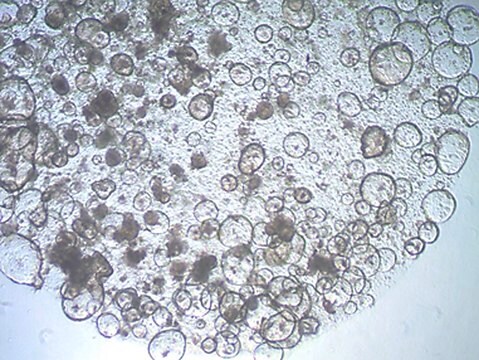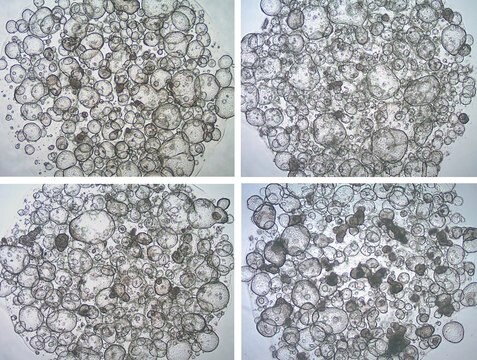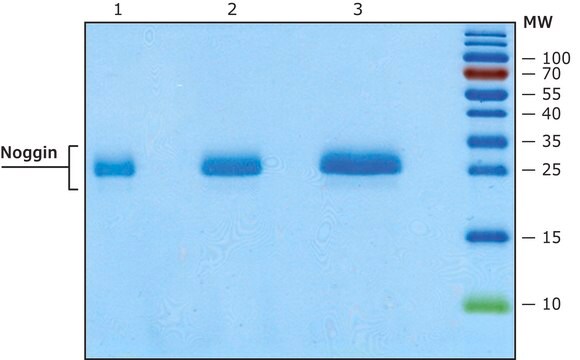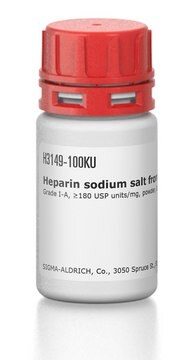SCC111
R-Spondin1 expressing 293T Cell Line
Human
Sinónimos:
RSPO1-expressing 293T cells
About This Item
Productos recomendados
Nombre del producto
R-Spondin1 expressing 293T Cell Line, The R-Spondin1-Expressing 293T cell line produces RSPO1, a critical protein used to establish 3D organoid cultures from stomach, small intestine, colon, pancreas, and liver sources.
origen biológico
human
Nivel de calidad
Condiciones de envío
ambient
Descripción general
The 293T cell line is stably transfected to express mouse R-spondin1 protein tagged with N-terminus HA epitope tag and C-terminus mouse IgG2α Fc region. R-Spondin1 expressing 293T cell line can be used to produce either purified Rspo1 or Rspo1 conditioned media. The FC region and HA tags enable ease of purification and characterization. Cell line is not the published cell line from the Kuo lab, but rather a related cell line developed in the same lab using the reference protocol.
Descripción línea celular
Aplicación
Cell Culture
Calidad
• Cells are tested negative for HPV-16, HPV-18, Hepatitis A, B, C, Herpesvirus type 6, 7, 8 and HIV-1 & 2 viruses by PCR.
• Cells are negative for mycoplasma contamination.
• Each lot of cells is genotyped by STR analysis to verify the unique identity of the cell line.
Almacenamiento y estabilidad
Cláusula de descargo de responsabilidad
Código de clase de almacenamiento
10 - Combustible liquids
Clase de riesgo para el agua (WGK)
WGK 1
Punto de inflamabilidad (°F)
Not applicable
Punto de inflamabilidad (°C)
Not applicable
Certificados de análisis (COA)
Busque Certificados de análisis (COA) introduciendo el número de lote del producto. Los números de lote se encuentran en la etiqueta del producto después de las palabras «Lot» o «Batch»
¿Ya tiene este producto?
Encuentre la documentación para los productos que ha comprado recientemente en la Biblioteca de documentos.
Los clientes también vieron
Artículos
Organoid culture FAQs. Learn how to culture and analyze organoids following established 3D cell culture protocols. Tips and tricks.
Organoid culture products to generate tissue and stem cell derived 3D brain, intestinal, gut, lung and cancer tumor organoid models.
Nuestro equipo de científicos tiene experiencia en todas las áreas de investigación: Ciencias de la vida, Ciencia de los materiales, Síntesis química, Cromatografía, Analítica y muchas otras.
Póngase en contacto con el Servicio técnico










